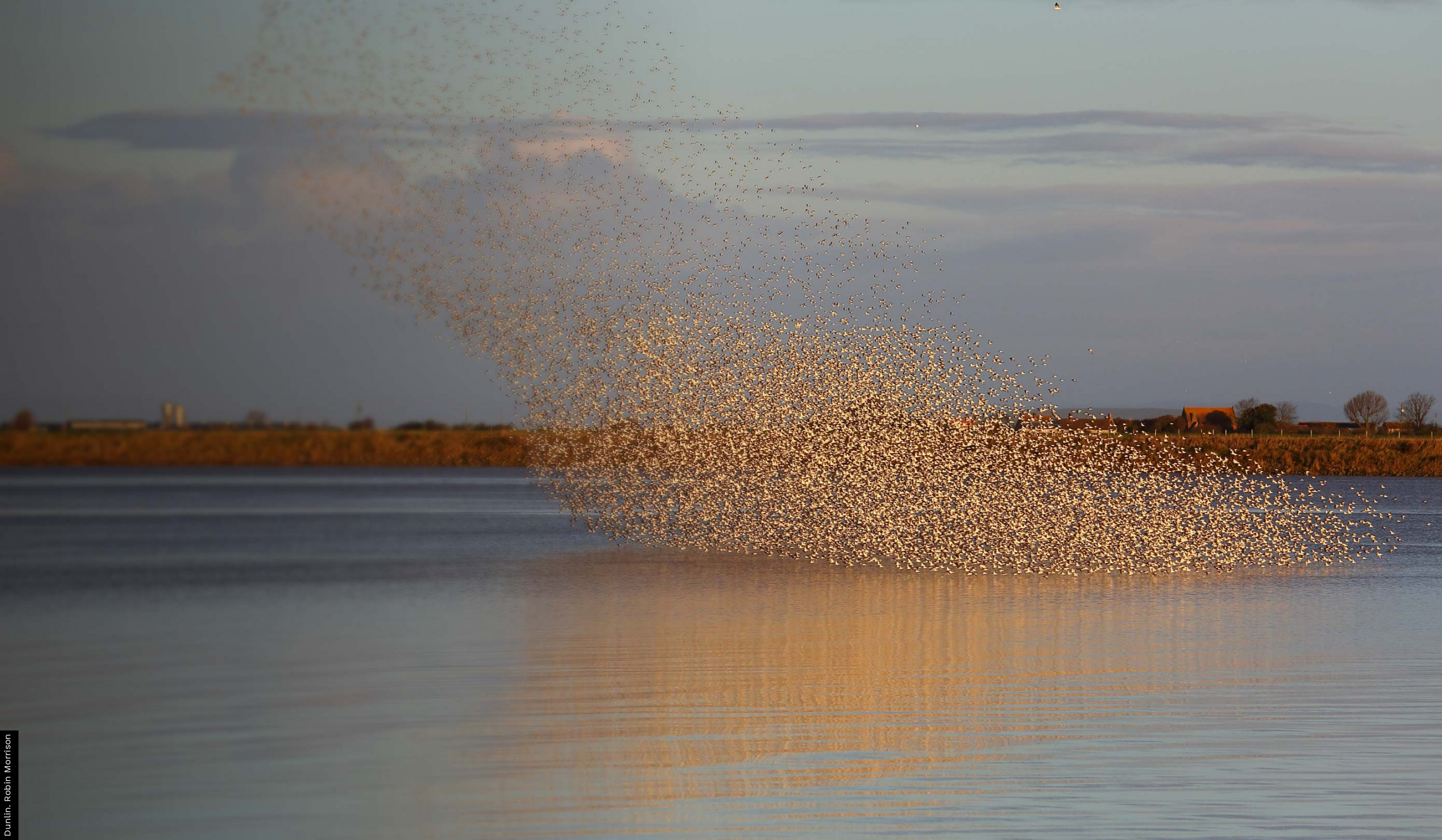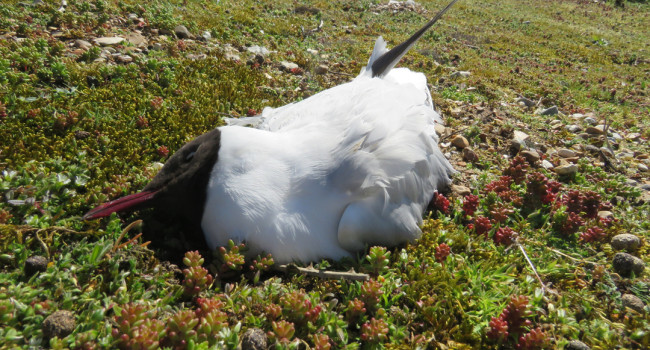Safeguarding Policy
The following outlines BTO's approach to safeguarding children (under the age of 18) and vulnerable adults who engage with the BTO for a variety of reasons.
This policy must be upheld by all volunteers, employees, participants, donors, supporters and trustees of BTO.
Abuse, harassment and harm can happen to anyone – volunteers, employees, participants, donors and supporters. It’s not always visible and often not spoken about. We firmly believe that raising awareness of safeguarding and building a positive culture is vital in creating a safe environment for everyone.
Purpose
The purpose of this policy is to set out our approach and commitment to protecting children and vulnerable adults who engage with BTO from harm and abuse.
All children and vulnerable adults, regardless of age, disability, gender, racial heritage, religious belief, sexual orientation or identity, have a right to protection from harm and abuse.
Many of the principles of safeguarding are the same throughout the UK however there are different governance and procedural arrangements in different countries.
Safeguarding children duties apply to any charity working with, or coming into contact with, anyone under the age of 18.
Safeguarding vulnerable adults means protecting their right to live in safety and free from abuse and neglect. Some adults are considered to be at greater risks so are given more protection by law.
An adult at risk is anyone aged 18 or over who:
- Has needs for care and support (whether or not the local authority is meeting any of those needs) and
- Is experiencing, or is at risk of, abuse or neglect
- As a result of those care and support needs is unable to protect themselves from either the risk of, or the experience of abuse or neglect
An adult at risk of abuse may:
- Have an illness affecting their mental or physical health
- Have a learning disability
- Suffer from drug or alcohol problems
- Be frail
There are a number of ways children may engage with BTO:
- Trainee Ringers
- Annual Bird Camp
- BTO Young Birders’ blog
- Young Leaders course
- Young Advisory Panel
- The Martin Garner Spurn Young Birder award The Young Bird Observatory Volunteers programme
- What’s Under Your Feet?
- Youth Membership
- Work experience, including survey fieldwork
- Volunteering
- Attending events
Vulnerable adults may engage with many of the above activities, work for BTO, be donors or supporters, or be involved in other areas of our work (Regional Network, committees, collaborators etc.).
This policy sets out our approach to safeguarding children and vulnerable adults, whilst many of the principles are the same; we recognise there are important differences between the two:
- A child is always covered by safeguarding whereas whether an adult is at risk or not is something which changes with their circumstances.
- When safeguarding adults, you must understand that everyone has the right to make decisions for themselves. Otherwise you can accidentally cause a different kind of harm by removing a person’s freedom of choice.
- It is important to consider the individual adults needs in every situation. Whilst safety is the primary concern for children it is still important to listen to their views.
We recognise:
- We have a duty to promote the welfare of children with whom we work and to keep them safe
- All children, regardless of age, disability, gender, racial heritage, religious belief, sexual orientation or identity, have an equal right to protection from harm or abuse
- Some children are particularly vulnerable because of previous experiences, their level of dependency, communication needs or other issues
- Working in partnership with children, their parents, carers and other agencies is essential in promoting welfare.
We will seek to keep children safe by:
- Valuing them, listening to and respecting them
- Safely recruiting, training, and/ or providing support and guidance to any staff or volunteers that we are directing to work with children
- Not allowing any person to undertake regulated activity if they are barred from doing so
- Appointing and training at least two designated safeguarding officers
- Sharing information about child protection and good practice with staff, volunteers, parents and children
- Sharing concerns with agencies that need to know, involving parents and children.
- Keeping our policy and procedures under review.
Volunteers, employees, participants, donors and trustees working with children must:
- Observe this policy, and any specific BTO guidelines for the relevant activity (see further guidance below)
- Ensure that any risk assessment for the activity takes children appropriately into account
- Ensure that any contact with children is appropriate for the activity
- Ensure that there is more than one adult present (within sight or hearing) during activities with children
- Listen to and respect children, treating them fairly and avoiding favouritism
- Use language that is appropriate for children and not offensive or discriminatory
- Respect children’s right to personal privacy
- Report all concerns or allegations of abuse to the BTO’s Safeguarding Lead, Andrew Scott (01842 750050 andrew.scott [at] bto.org) or Sian Knott (01842 750050 sian.knott [at] bto.org). Safeguarding concerns can also be reported via our .
Safeguarding Reporting Form
Safeguarding Reporting Form (DOCX, 18.00 KB)
Volunteers, employees, participants, donors and trustees working with children must not:
- Work regularly with children (defined as once a week or more, or on 4 or more days in 30, or overnight) without completing the vetting procedures required by law in the country of work – any queries or undertaking vetting procedures can be sent to peopleteam [at] bto.org
- Work with children if they are barred from doing so
- Develop inappropriate relationships with children or vulnerable adults
- Allow concerns or allegations of abuse to go unreported
- Make promises to children or vulnerable adults not to report disclosures of abuse
Parental consent for volunteers under 18 years of age
BTO Parental Consent form
Reporting a welfare or safeguarding concern
If you have a welfare or safeguarding concern, make a written note of it.
If you would like to report a welfare or safeguarding concern, please email peopleteam [at] bto.org - all enquiries are treated with confidence and in a sensitive manner.
- You can also report a Safeguarding concern via our .
Safeguarding Reporting Form
Safeguarding Reporting Form (DOCX, 18.00 KB)
Reporting a breach of safeguarding policy
Any breaches of our safeguarding policy must be reported to peopleteam [at] bto.org and the BTO’s Safeguarding Lead, Andrew Scott (01842 750050 andrew.scott [at] bto.org), or Safeguarding Officer Sian Knott (01842 750050 sian.knott [at] bto.org).
A breach of this policy by an employee may be regarded as a disciplinary offence under BTO’s disciplinary procedures.
Serious breaches may also result in a referral to a statutory agency including DBS, the police, the local authority social care department and the Independent Safeguarding Authority.
Monitoring our approach to safeguarding
This policy is reviewed regularly by our Safeguarding Leads and Board of Trustees. Our Safeguarding Policy may also be reviewed in the following circumstances:
- Changes in legislation and/or government guidance in England & Wales, Scotland or Northern Ireland
- As required by the Disclosure & Barring Service, Disclosure Scotland and Access NI or other appropriate regulatory bodies
- As a result of changes in policy or guidance issued for Charities by the Charity Commission for England and Wales, Scottish Charity Regulator or Charity Commission for Northern Ireland
- As a result of any other significant change or event
Legal framework
This policy has been drawn up having regard to:
- Children Act 1989
- United Nations Convention on the Rights of the Child 1991
- General Data Protection Regulations
- Sexual Offences Act 2003
- Children Act 2004
- Protection of Freedoms Act 2012
- Charity Commission guidance
- NVCO Safeguarding guidance
Relevant guidance
- We have specific advice on safeguarding Trainee Ringers under the age of 18, which is available on our Safeguarding in Ringing page.
- Health and safety information for volunteer fieldworkers
- Guidelines for undertaking fieldwork with children and young people






Share this page